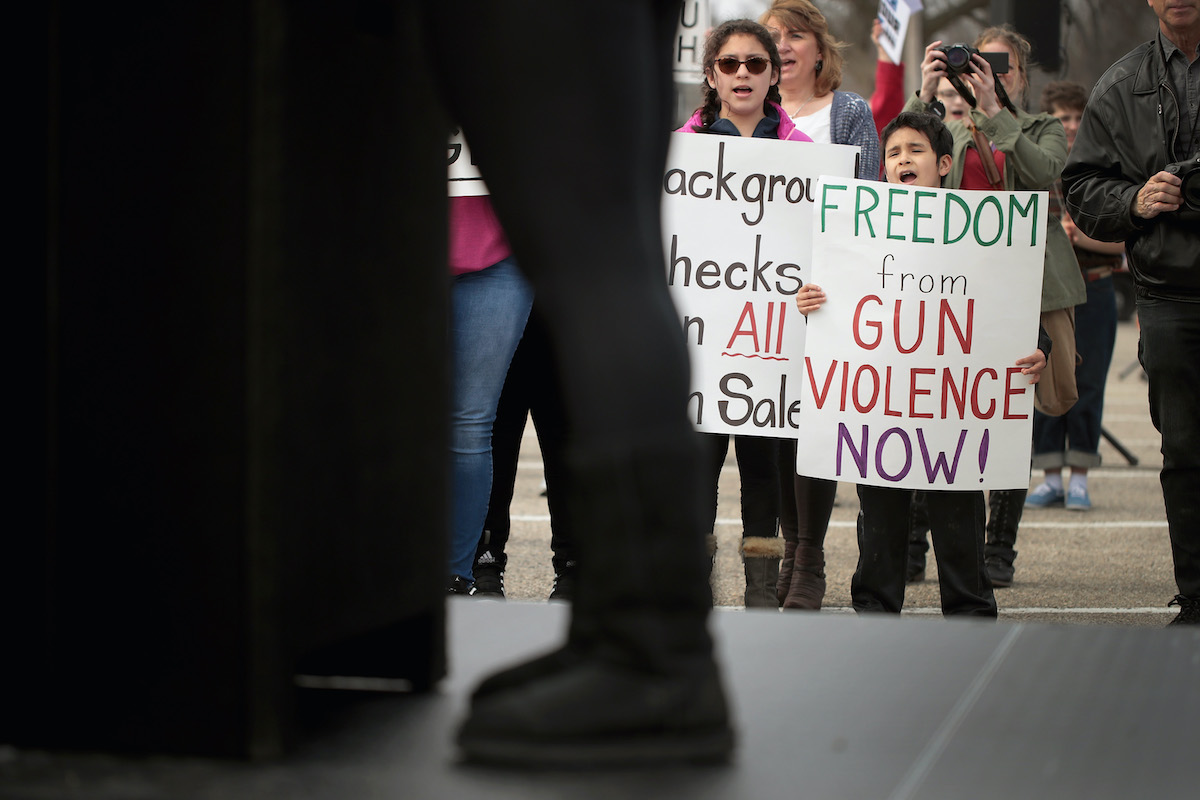Republicans Are Still Fighting To Make Sure as Many Domestic Abusers as Possible Can Get Access To Guns

The Senate announced last weekend that it had reached a deal on a bipartisan gun reform bill. While watered down and far from perfect, most people seem to agree that some progress is better than nothing and at the very least, this would break a nearly three-decade-long streak of total inaction from Congress regarding gun safety. The bill’s framework also included some really important provisions, including red flag laws—which allow police to confiscate firearms from people deemed dangerous by a court—and the so-called “boyfriend loophole.”
As we’ve discussed, there is no greater indicator of future violence than a domestic violence conviction and the “boyfriend loophole,” or intimate partner or dating loophole, would expand the definition of domestic violence to include unmarried partners. Closing this loophole is an essential step forward to preventing future violence, including acts of mass gun violence. It’s so important that we were even willing to give Kyrsten Sinema props and thanks for reportedly being the person who got the provision into the bill in the first place.
But the Senate is still working out the details of the bill, even after they announced they had the votes to pass it. And apparently, the boyfriend loophole is one of the last remaining sticking points.
According to a report from the New York Times, “lawmakers must agree on what exactly makes someone an intimate partner. Is it one date or several? Could an ex-boyfriend count?” And senators are reportedly having problems coming to a consensus.
“The surface explanation seems like it would be fairly simple, but I know that as they try to reduce it to legislative text, I think it’s gotten a little bit more uncomfortable,” said one Republican not directly involved with the negotiations. And Republican Senator John Cornyn, who is very much central to the negotiations, indicated that there’s such a difference in opinions on the matter that the provision might be dropped altogether. “I’m not frustrated—I’m just done,” he told reporters as he left a lengthy private negotiating session Thursday.
What Republicans are fighting for
From the sound of it, Republicans are trying to limit who can be considered an intimate or dating partner (of course they are), while Democrats in the negotiations are trying to expand the criteria. Right now, anyone with a domestic violence misdemeanor conviction is already barred from buying a gun in most cases. But as Democratic Senator Christopher Murphy, who has been leading these talks, said, “There are many people who committed domestic violence who aren’t actually charged with domestic violence—they are charged with simple assault, but they unquestionably committed an act of domestic violence.”
Just to be clear Republicans are holding up a (modest) deal on gun safety because they want (some) people who were CONVICTED OF DOMESTIC VIOLENCE or SUBJECT TO A DOMESTIC VIOLENCE RESTRAINING ORDER to still be able to buy guns
— Judd Legum (@JuddLegum) June 17, 2022
Murphy also said there is “a complicated question of state statutes and state charging practices.” But just because the issue is complicated, that’s no reason to drop it. According to a national survey from the University of Pennsylvania, the vast majority of partner violence—more than 80% in one study population and more than 50% nationwide in cases that were reported to law enforcement, which itself is only estimated to be about half of all cases—involved people who are not currently or formerly married.
Democrats in Congress have been working to get the boyfriend loophole closed for years and Republicans keep shutting it out down. Which really begs the question—and it’s not a new question, by any means—why? Why are they so opposed to keeping people who have stalked or assaulted women from gaining access to more guns? I mean, we all know why but I would really like them to try to explain it without admitting outright that they don’t care about/straight-up hate women, and that they see our lives as nothing more than a political bargaining chip, if even that. Because at this point, it’s getting hard to believe they were ever even open to the idea of considering this provision in the first place.
They know the boyfriend loophole well — why would they agree to include it in the framework if they didn’t want to do it? Was it a gambit to later tank the negotiation?
— Arthur Delaney 🇺🇸 (@ArthurDelaneyHP) June 17, 2022
(image: Scott Olson/Getty Images)
Have a tip we should know? [email protected]
